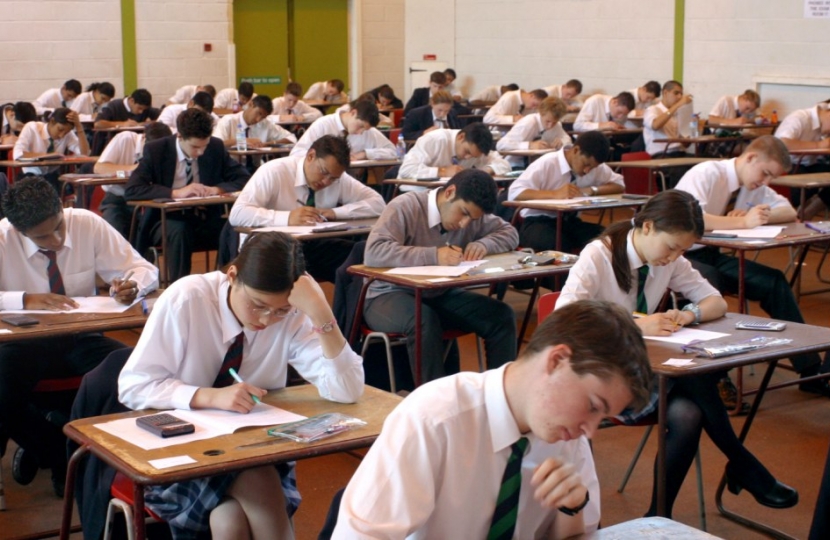
Students sitting exams and other assessments in summer 2021 will benefit from a package of exceptional measures to make them as fair as possible and prevent disruption caused by Covid-19.
In recognition of the challenges faced by students this year, grades will be more generous, students will be given advance notice of some topic areas and steps will be taken to ensure every student receives a grade, even if they miss a paper due to self-isolation or illness.
Keeping schools and colleges open to minimise disruption to education has been a national priority throughout the pandemic, and exams are an important part of judging a student’s progress.
The government has engaged extensively with Ofqual, exam boards and senior leaders across the education sector while making these decisions.
In addition to the three-week delay to offer extra teaching time, the new measures for 2021 exams include:
- more generous grading than usual, in line with national outcomes from 2020, so students this year are not disadvantaged;
- students receiving advance notice of some topic areas covered in GCSE, AS and A levels to focus revision;
- exam aids - like formula sheets - provided in some exams giving students more confidence and reducing the amount of information they need to memorise;
- additional exams to give students a second chance to sit a paper if the main exams or assessments are missed due to illness or self-isolation; and
- a new expert group to look at differential learning and monitor the variation in the impact of the pandemic on students across the country.
The measures recognise that while teachers have gone above and beyond to support their pupils during a difficult period, some young people have had their teaching disrupted more than others and will need extra support to catch up on the curriculum and achieve their potential in exams.
In these instances, receiving advance notice of some topic areas and being given exam aids will support students and ensure they can move on to their next stage of education, training or employment with the grades they deserve.
Students taking vocational and technical qualifications will also see adaptations to ensure parity between general and vocational qualifications. Some vocational qualifications will require more varied adaptations due to the different qualification types.
Primary assessments
For primary assessments, key stage 1 tests in English reading and mathematics, and the English grammar, punctuation and spelling tests at key stage 1 and 2 will be removed for one year, in recognition of the challenges posed by the pandemic.
Schools can take a flexible approach to the administration of the key stage 2 tests and phonics screening check, by extending the original timetable by a week, until 26 May and 25 June, respectively.
Exams and self-isolation
The Government has also developed a series of contingency measures with Ofqual that will mean, even if students miss one or more exams due to self-isolation or sickness but have still completed a proportion of their qualification they will still receive a grade. The Government will set out further detail on this process, and on adaptations to exams, in the new year.
Education performance tables
Test and exam results will not be included in performance tables this year, and instead will be replaced by attendance information, and student destinations and the subjects taken at key stage 4 and 5.
Although primary performance data will not be published, teacher assessment in English reading, writing and mathematics at key stage 1, and all other assessments at key stage 2, will remain. These measures will help to understand pupils’ lost time in education and support those that need it most, providing vital information to parents and assisting with pupils’ transition to secondary schools.
These changes take account of the challenges posed by the pandemic but will ensure parents still have access to vital information about their local school.
Remote learning guidance
The Government has also reviewed remote education guidance and published updated expectations to provide further clarity for schools, colleges, parents and pupils. Primary schools are expected to provide a minimum of three hours a day on average of remote education, with secondary schools expected to provide at least four hours’ worth.
Further information
-
A survey from online content provider GCSEPod this week found that two thirds of teenagers thought “knowing which topics will be in the exam” would make exams fairer.
-
In the same survey, 67% of young people said they would like to see grades being more generous.
-
Ofqual will work to ensure grading generosity from 2020 is spread evenly between subjects, avoiding different standards between one subject and another. Every subject will therefore receive the same level of generosity so that the approach doesn’t advantage some students over others depending on their subject choice.

